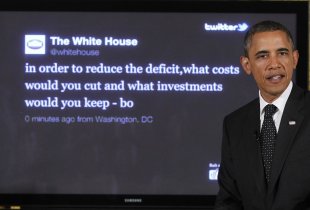MONYWA, Myanmar (AP) — Security forces used water cannons and other riot gear Thursday to clear protesters from a copper mine in in northwestern Myanmar, wounding villagers and Buddhist monks just hours before opposition leader Aung San Suu Kyi was to visit the area to hear their grievances.
The crackdown at the Letpadaung mine near the town of Monywa risks becoming a public relations and political fiasco for the reformist government of President Thein Sein, which has been touting its transition to democracy after almost five decades of repressive military rule.
The environmental and social damage allegedly produced by the mine has become a popular cause in activist circles, but was not yet a matter of broad public concern. However, hurting monks — as admired for their social activism as they are revered for their spiritual beliefs — is sure to antagonize many ordinary people, especially as Suu Kyi’s visit highlights the events.
“This is unacceptable,” said Ottama Thara, a 25-year-old monk who was at the protest. “This kind of violence should not happen under a government that says it is committed to democratic reforms.”
According to a nurse at a Monywa hospital, 27 monks and one other person were admitted with burns caused by some sort of projectile that released sparks or embers. Two of the monks with serious injuries were sent for treatment in Mandalay, Myanmar’s second biggest city, a 2 ½ hour drive away. Other evicted protesters gathered at a Buddhist temple about 5 kilometers (3 miles) from the mine’s gates.
Lending further sympathy to the protesters’ cause is whom they are fighting against. The mining operation is a joint venture between a Chinese company and a holding company controlled by Myanmar’s military. Most people remain suspicious of the military, while China is widely seen as having propped up army rule for years, in addition to being an aggressive investor exploiting the country’s many natural resources.
Government officials had publicly stated that the protest risked scaring off foreign investment that is key to building the economy after decades of neglect.
State television had broadcast an announcement Tuesday night that ordered protesters to cease their occupation of the mine by midnight or face legal action. It said operations at the mine had been halted since Nov. 18, after protesters occupied the area.
Some villagers among a claimed 1,000 protesters left the six encampments they had at the mine after the order was issued. But others stayed through Wednesday, including about 100 monks.
Police moved in to disperse them early Thursday.
“Around 2:30 a.m. police announced they would give us five minutes to leave,” said protester Aung Myint Htway, a peanut farmer whose face and body were covered with black patches of burned skin. He said police fired water cannons first and then shot what he and others called flare guns.
“They fired black balls that exploded into fire sparks. They shot about six times. People ran away and they followed us,” he said, still writhing hours later from pain. “It’s very hot.”
Photos of the wounded monks showed they had sustained serious burns on parts of their bodies. It was unclear what sort of weapon caused them.
The protest is the latest major example of increased activism by citizens since the elected government took over last year. Political and economic liberalization under Thein Sein has won praise from Western governments, which have eased sanctions imposed on the previous military government because of its poor record on human and civil rights. However, the military still retains major influence over the government, and some critics fear that democratic gains could easily be rolled back.
In Myanmar’s main city of Yangon, six anti-mine activists who staged a small protest were detained Monday and Tuesday, said one of their colleagues, who asked not to be identified because he did not want to attract attention from the authorities.
Asia News Headlines – Yahoo! News











